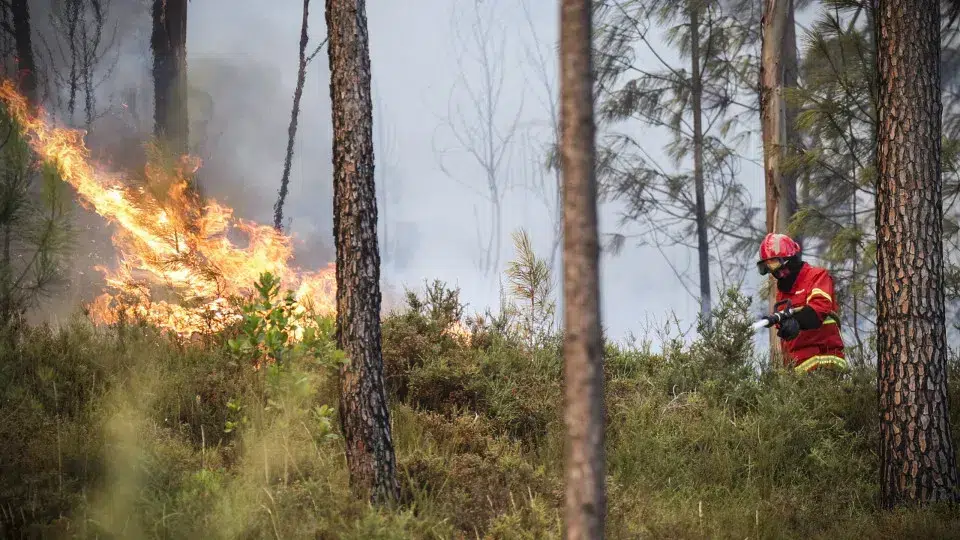
“Burned wood has numerous factors of devaluation,” immediately creating a “harsh situation” for those who work with it, stated the President of the Portuguese Wood and Furniture Industries Association (AIMMP), Vítor Poças, in statements to Lusa.
Regarding pine, the burned bark loses value, considering that it is a product heavily exported to the Netherlands for orchid production.
Another devaluation factor relates to the quality of the wood, which if not immediately cut and used becomes more susceptible to pests and diseases.
The appearance of the wood is also affected, as burning gives it a bluish tint, in addition to altering its physical properties and hindering resin extraction.
“The first major victims of the fires are the owners and then the industry, because the wood they receive is of much worse quality,” he noted.
Additionally, not all burned wood can be used; typically, trees less than 10 centimeters in diameter are destroyed by fire but must be cut to allow natural regeneration.
Vítor Poças also clarified that it is often said that an area has burned brush, but in reality, it is forest with small trees, less than five years old.
On the other hand, the AIMMP pointed out that Portugal still needs to import, on average, about 30% of its wood, specifically sawn or log wood.
Meanwhile, Portuguese exporting companies find themselves in a situation of “much greater dependency” and struggle to compete abroad.
Some companies end up closing, and others barely hold on, “but surviving is not the same as growing,” he pointed out.
Prime Minister Luís Montenegro announced on August 21 in a press conference in Viseu, where the extraordinary Council of Ministers took place, a “new legislative instrument” to be adopted in similar circumstances to those Portugal faced in recent weeks due to fires.
Among the 45 measures approved is financial support for the “profitability of agricultural productive potential and exceptional support for farmers to compensate for losses, even through undocumented expenses,” up to a maximum of 10,000 euros, as well as a forest plan to be implemented until 2050.
According to the AIMMP, ideally, there would be “no supports, and no fires,” especially as these aids mitigate, but do not solve the problem.
Despite appreciating these aids, it calls for addressing the root cause of fires, viewing them as a “heinous crime” that is destroying the national forest.
Vítor Poças advocates for strengthened forest surveillance and security, the creation and improvement of access, the aggregation of plots by companies, cooperatives, or associations to create profitable units that retain talent.
He also calls for more equipment to increase the productivity of forest workers and stronger investment in the Judicial Police.
This is coupled with an adjustment of the penal framework so that judges can more easily apply sentences.
Established in 1957, the AIMMP represents all forest-based industries, except for cellulose, paper, and cork.




